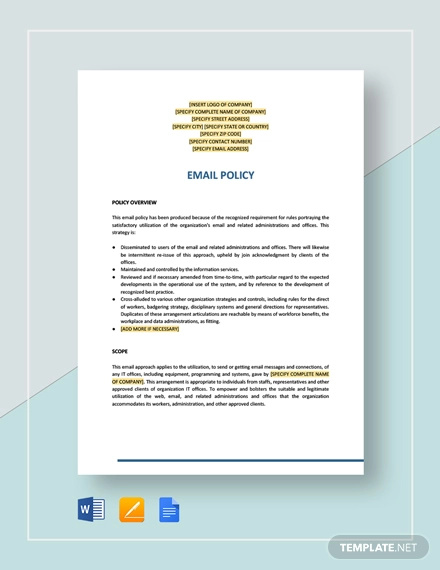How to Make an Email Policy
Because of technology’s rapid advancement, it is so much easier to share information with everyone than ever before. However, this is not always necessarily a good thing as this could result in leaking confidential information to people that should not even be able to view them. So, there has to be a way to control the type of emails that people send.
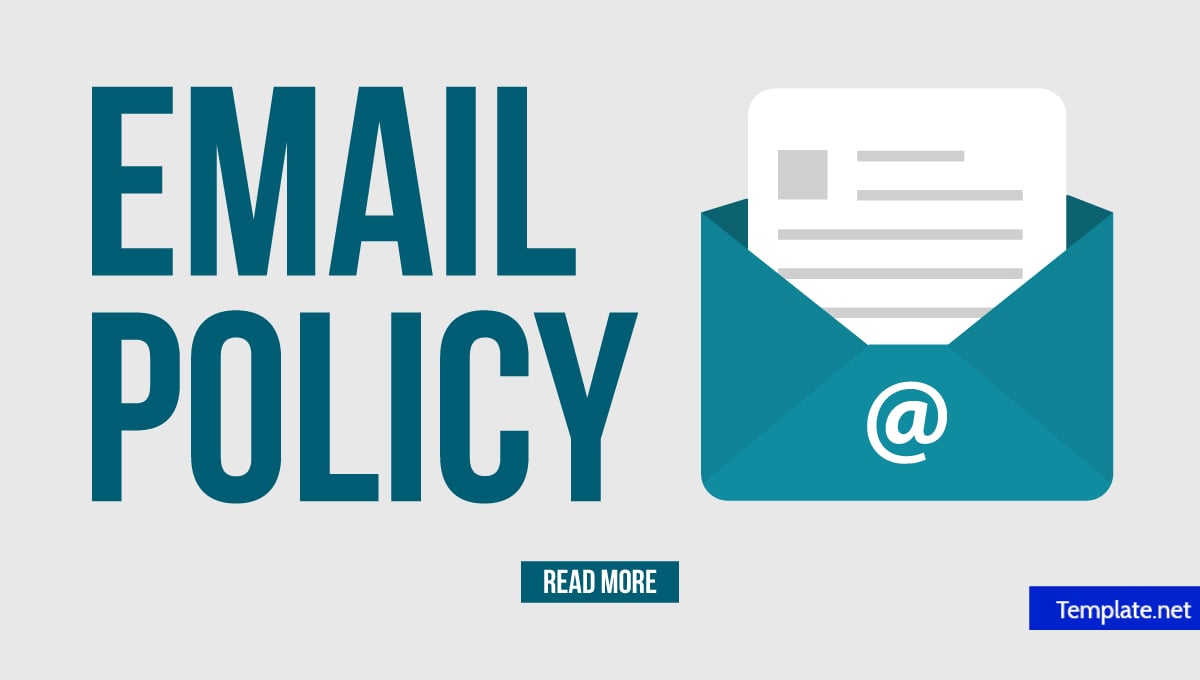
This is why there are particular company policies that focus solely on how employees use and send emails so that businesses are able to protect themselves from having their information leaked out to their competitors. This article is going to focus on how you can create an email policy that best suits your business. You may also see hr policies.
Email Policy Template
How to create an email policy for your company
With an email policy, you need to point out what it is your employees can do with work-related or employee-owned devices that are used for official company business. So, if you are going to create this type of policy for your organization, then you have to make sure that the following are included:

1. Software access procedures
You have to state that all of the software in company devices—from Microsoft Excel to photo editing applications—has to be authorized by management and then installed and downloaded by the IT department. This will ensure that there are no software programs that could potentially cause harm to company property. If employees wish to access software or websites that are not found within the company network, then they will need to talk to the manager and consult with the IT department to explain what returns you expect to receive from the product. This is to ensure that employees only go through sites or use software that has been marked as safe for business-related purposes. You may also see company policy templates.
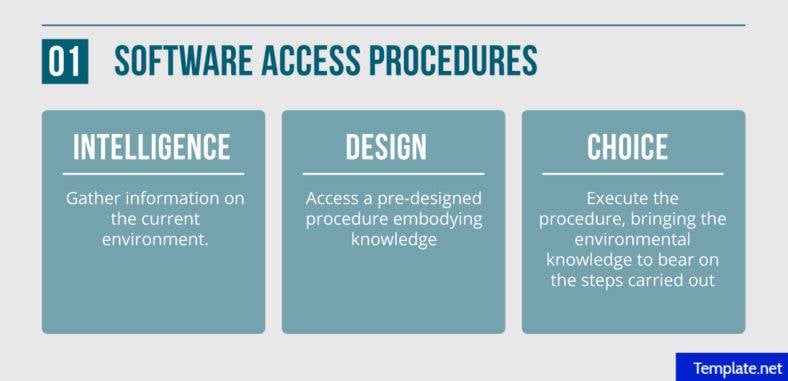
2. Usage of company-owned equipment
Your policy should state the different company-owned devices the policy covers. Some examples of devices are tablets, mobile phones, laptops, desktop computers, and desk phones.
State that the company owns these devices as well as the information that can be found in the devices. Also, if an employee were to leave the company, then all company devices that are in his or her possession must be returned on the employee’s last day of work. This is to ensure that the employee will no longer have access to these devices as well as the information that is stored in them. You may also like sample policy memo.
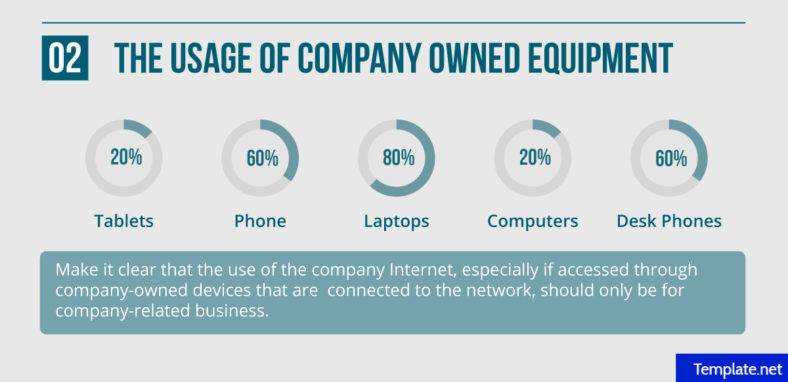
If you want to be a little lenient, then your policy can point out that employees may use any of their personal electronic devices that are not connected to the company network to access any appropriate Internet sites during their sample scheduled breaks. This way, your employees have a bit of leeway and they may enjoy whatever it is they search up on the Internet. Just remember to emphasize that these sites must be appropriate.
3. Internet usage
Make it clear that the use of the company Internet, especially if accessed through company-owned devices that are connected to the network, should only be for company-related business. Remember that with the Internet, there is a very high chance that the company’s confidential information can be breached. One employee may download something that contains viruses that could then contaminate the company’s network system. There might even be spyware that could potentially lead to non-company personnel accessing important account information. So, limiting what employees are able to access will help prevent these risks from ever taking place. You may also see corporate email usage policy.
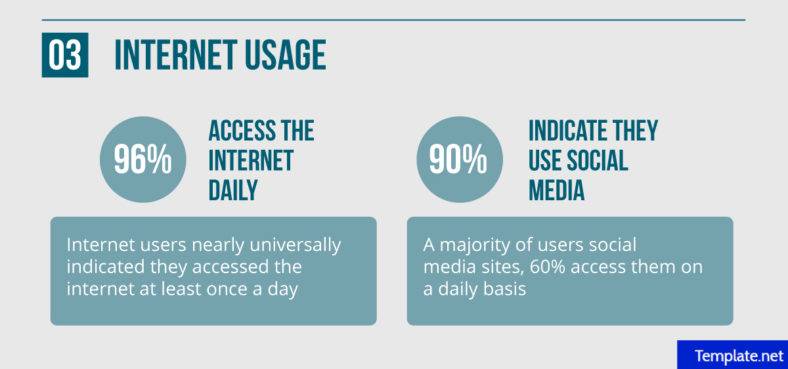
4. Social media
Social media is always a great way to get in touch with clients or to do anything business-related. There are even some employees who have social media responsibilities within their job description such as tech support, simple social media marketers, or recruitment. However, it is also noted that there are some employees who use social media too much to the point where it has blurred their perception of working time and off-work time.
This is why your policy has to point out that employees should limit the use of social media to work-related content and outreach during office hours. Also, it should state that employees are not allowed to post or share any confidential or protected company information. It is best to state that employees should not create posts or put in images that would make the company or their co-workers look bad in the eyes of the public. The company’s brand and reputation have to be protected at all times, so making sure that these employees do not do anything that will the bring the company’s image down is something that your business should definitely do.

Your email policy should also state that employees may not post anything discriminatory about someone’s age, race, gender, nationality, or even disability in the event that they decide to post content in their social media pages when using their personal or working devices. State that any employee who violates this particular section of the policy will be dealt with according to your company’s harassment investigation policy.
5. Email usage at the company
Remind your employees that email is to be used for company-related purposes only. State in your policy that employees must never send emails containing any confidential company information unless they are authorized to do so. The policy should also state that the employee cannot use the computer to send emails that are for their own personal gain. The reason for this is because sending any non-business email is a waste of an employee’s time and attention as it could have been used to be more productive in the workplace.
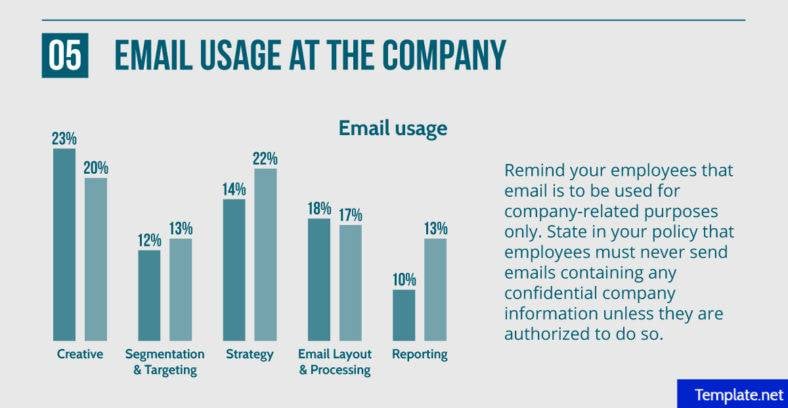
Also, point out that any employee who will use the company email to send out lewd jokes or pornographic pictures to anyone within the company will be considered violating the harassment policy and will be addressed accordingly.
6. Discriminating emails
Your policy will have to point out that any email that discriminates against someone’s age, race, gender, nationality, disability, religion, or color is strictly prohibited. The policy should state that in the event an employee violates this policy and still sends this type of email, then he or she will be dealt with according to the consequences that are found in the company’s harassment policy. It should be obvious that these types of emails are prohibited in any company, but it is best to remind employees of this. Sending an email of this kind will result in immediate disciplinary action depending on the severity of the offense. Point out that this can range from receiving a verbal warning, all the way to immediate termination.
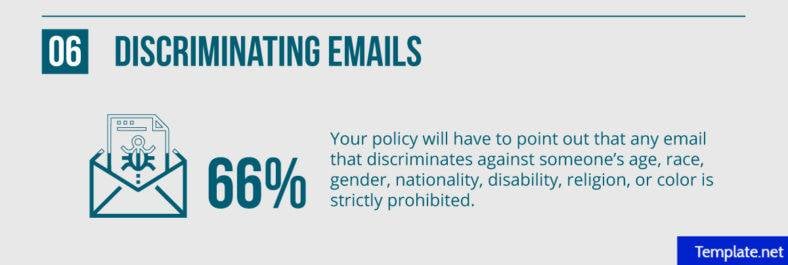
7. Company owns employee email
Your policy has to remind employees that the company owns any communication that is sent via email or anything that is stored within company equipment. It has to state that those in management report or any other authorized staff have the right to access the email in the employee’s company computer at any given point in time. Point out that any electronic communication, storage, or access are not private if they are stored within the company’s own work systems. This way, employees will be more careful with what they share with their co-workers or any emails that they decide to share with anyone outside of the company.
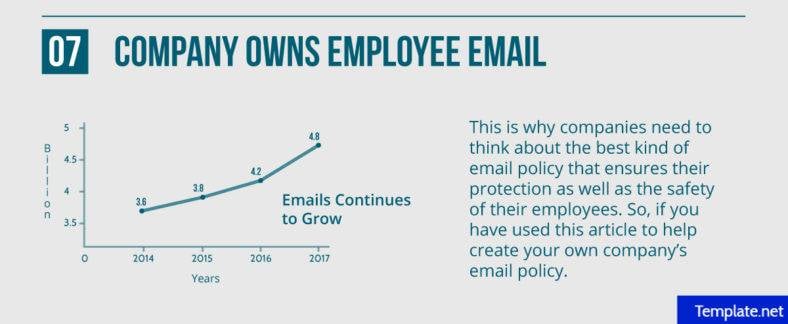
Why is it important to have an email policy?
Having an email policy benefits just about every business as it ensures employees know what they should and should not do when sending emails or utilizing a company’s Internet access to share information. One can never be careful nowadays as there are many ways for companies to lose valuable information through the Internet. Whether it is because of a security breach in the company’s network or an employee was simply careless to the point where he or she slipped out confidential information to a competitor, the threat is always going to be there, no matter what business you are in. You may also see printable business policy templates.
This is why companies need to think about the best kind of email policy that ensures their protection as well as the safety of their employees. So, if you have used this article to help create your own company’s email policy, then you have to guarantee that every single one of your employees is able to read and understand it. You can even go a step further and have these employees sign an acknowledgment letter that states they have read, understood, and agreed to the email policy. This ensures your company’s protection in the event an employee violates the policy and claims that he or she did not know that it was a violation.
Also, your policy should have contingency plans in the event that the policy has been breached. You need to think of all the ways to prevent the problems from getting worse and find ways to solve them as soon as possible. You cannot just let an employee who has possibly damaged your company’s reputation and chances for success get away without punishment, either. So, see how severe the damage is and act accordingly. If the severity of the offense as stated in the policy shows that the employee deserves a warning letter, then create and submit one. If it says the employee must be terminated, then you have every right to do so.





